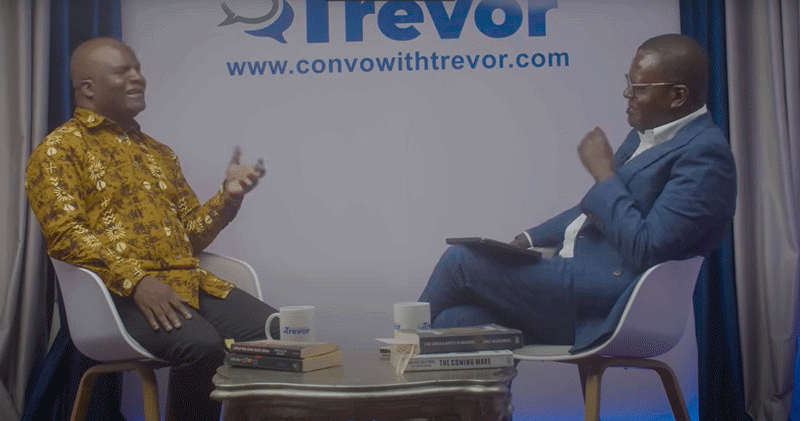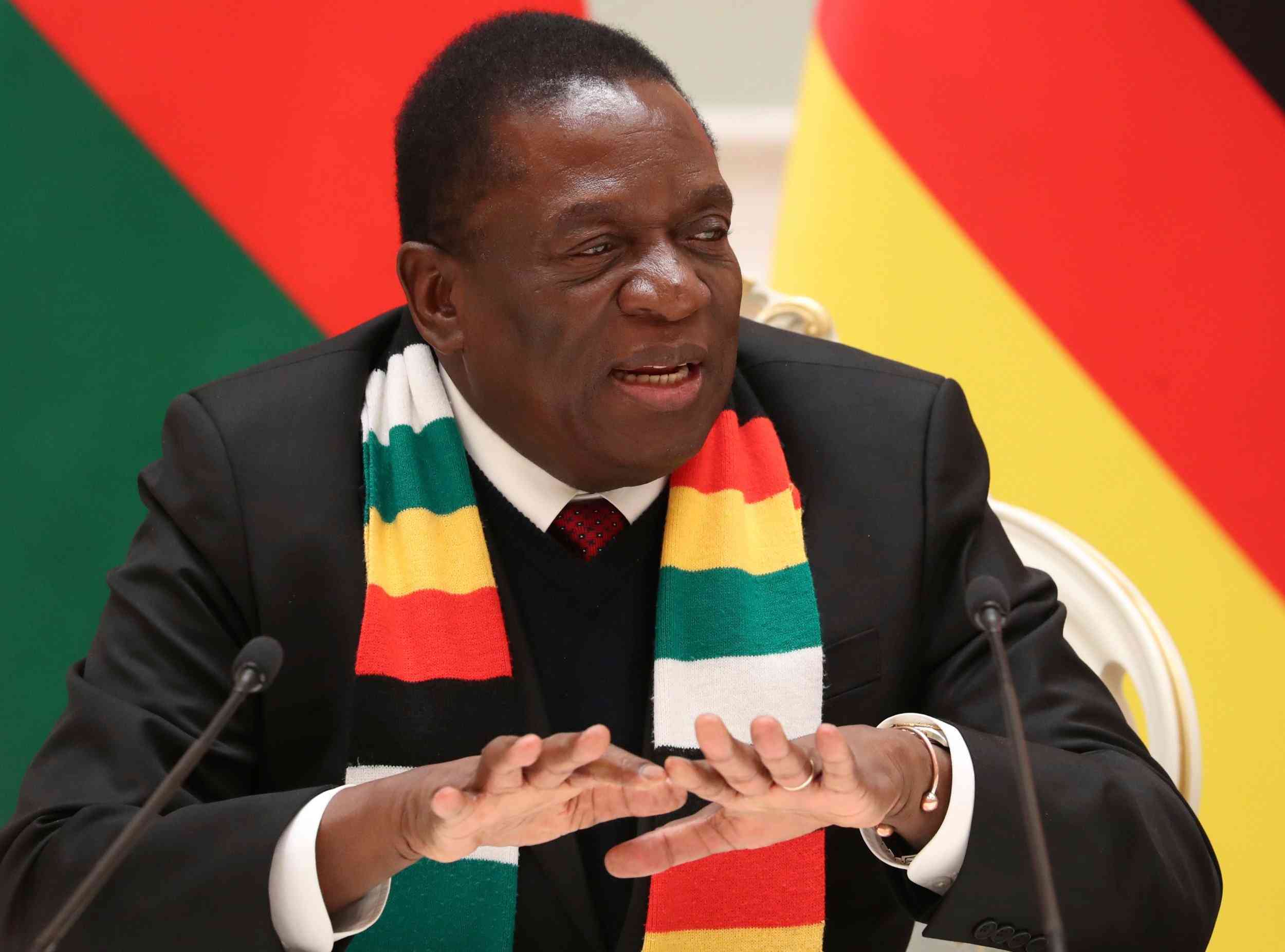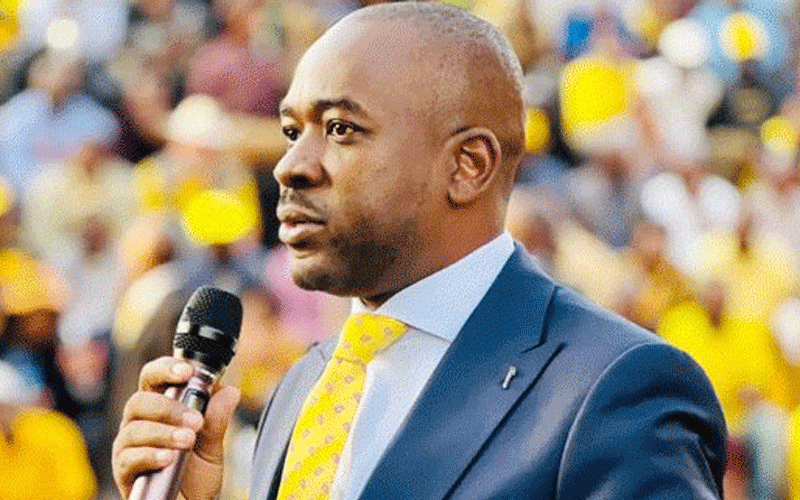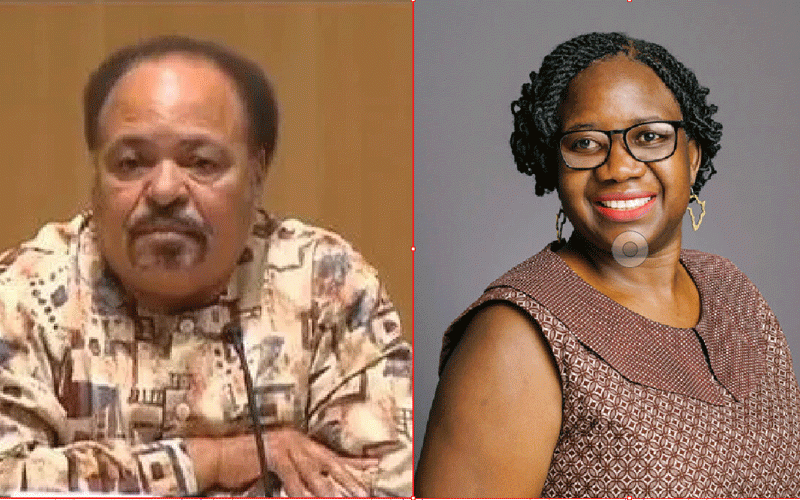
Prominent digital transformation strategist Dennis Magaya says growing up without a father shaped his life.
Magaya (DM), whose father was a liberation war fighter and died on the war front, spoke about his upbringing and career on the platform In Conversation with Trevor hosted by Alpha Media Holdings chairman Trevor Ncube.
Below are excerpts from the interview.
TN: Welcome to In Conversation with Trevor, brought to you by Heart and Soul Broadcasting Services. Today I’m in conversation with Dr. Dennis Magaya, a digital transformation strategist.
You know, when I look at people like you, with all the things that you have been able to achieve, I always say to myself, where did they actually start?
I suppose, you know, shall we go to primary education? When you look at yourself and look at where you are right now, talk to me about that space.
DM: Thank you very much. I could never imagine I will be where I am, just the way I started.
- In Conversation with Trevor: Chisamba: Let’s be proud of ourselves
- In Conversation with Trevor: ‘I tried to change Zanu PF from within’ – Margaret Dongo
- In Conversation with Trevor : How car crash changed my life
- In Conversation With Trevor: ‘We lost our humanity’
Keep Reading
TN: Where did you start?
DM: I think the key issue that shaped my life is I never got to see my father. So I was raised by somebody that I could see.
So you could almost imagine what you wanted and then just do it.
TN: What happened?
DM: My father passed in June, 1976 during the war, the liberation war.
What we were told is that it’s probably he was first and only member of the first commanders to die during the war and so on.
He went to Botswana, Zambia, Tanzania, then eventually to Mozambique and then came through February, March 1976 to open then what was called Manika Front.
So he then brought the first set of comrades to open the Manika Front.
But unfortunately he died on the front. So that’s what shaped me. I was raised at the farm by my grandparents.
My father was the second born, but the bread winner really. So when he passed on, my grandfather was very keen to get some kind of replacement.
My grandfather was very determined for me to finish school.
Mine was just to pass because that was the only way I figured out I could live a life.
So I just had to get distinctions. So I started doing maths, physics and chemistry. At that stage I was figuring out perhaps I could do medicine.
TN: Where did you get these ideas that you could do medicine?
DM: When you come into town, you just see these medical doctors.
You are told these guys have a little bit more money and they do complicated things.
So I figured out, okay, let me do medicine. But then my colleagues went to University of Zimbabwe open day.
They came back saying, that’s still a dead tea point or something. So I got scared out of it.
Then I decided I’m going to do engineering and then some philosophy, again, between university, you ask, okay, what degree do people with very good point grades do?
They said, electrical engineering. I said, okay, I’ll do it. It was only in third year when I actually got to work for the fixed line operator.
TN: So you pass your engineering? Yes.
DM: Then I finished my electrical engineering at the University of Zimbabwe. I went to work briefly for Anglo American in Shanghai.
TN: Before you go there, I want to take you back to growing up without your father.
I felt you didn’t, there’s something you didn’t say there. What was that like? You are saying you’re raised by somebody who wasn’t there? Well, what does that mean?
DM: I think they think that I inherited from my father. So as you grow up, your grandfather says, I look here, this is what your father left because when he went to the war, he left a trunk.
In the trunk, there were books and poetry that he used to read, he used to write at school.
Then I would visualiee how it looked like. I’d visualise what he liked.
TN: Why was this important for you?
DM: I think my grandfather emphasised how great he was. I never saw him. I actually never saw his picture.
But listening to people around, every relative and every person that grew to take him as the lead of the family and the greater family, and I think during that time going to leaving school, he was at high school to join the liberation war was something that many people aspired and really appreciated.
So he was a great person in the bigger family leading by example, living by example.
So the stories that my grandfather would tell me about him would make me visualise what it is around.
My father, my mother was with us for a while, but then she left and she got remarried.
TN: How long were you with your mother?
DM: Until I was about seven.
TN: And so with that growing up without your dad, I get a sense that you envision him, you as you are reading the poem.
DM: Yes.
TN: Do you get a sense it left a gap in you or you managed to create an image that you hung on to?
DM: It’s a very difficult question to answer because I sit in two ways.
The positive side, I think it inspired quite a lot because I would almost always ask myself, would you have been happy if I had done this?
So just so you know from almost when I was young until when I finished school, my grandparents never shouted at me.. they never beat me up.
So he inspired me to do things that I thought he would have wanted me to do.
But the other side, is that you almost wish if he was alive, maybe you could have done even double or three times of what you have done.
When you see other children consulting their fathers, getting guidance and getting leverage, you almost have a sense that everything being equal, maybe I could have gone very far.
Sadly, we will never know.
TN: Let’s move to where you are right now. You see you all and founder of Ruby and Group. What services does your company, your consultancy offer?
DM: We offer digital transformation strategy.
I’ve always wanted to offer consultancy.
And then I figure out that the best way to compete with other big companies is to focus more on the implementation, because naturally they would move in and leave PowerPoint slides and go away. And they didn’t like Africa.
So I figure out if I go into Africa and focus on the other side, which they don’t like, which is sitting in with the clients and doing implementation, I can then differentiate myself.
And indeed, that’s what made us grow. So we offer digital transformation consultancy, but more importantly, implementation support.
So out of the PowerPoint slides, we actually do the implementation of digital transformation.
And then the second thing we do is out of the exercise of doing strategic planning, we then realise that value actually doesn’t come from these big enterprise applications, your ERPs.
It comes from very unique and highly customised solutions for clients.
So we identify them. So I got the other part of my business, which developed solutions for organisations. And then off late, we now are into artificial intelligence.
So largely it’s a digital transformation strategy, digital transformation implementation in one. And then we do solutions that we develop for corporates.









